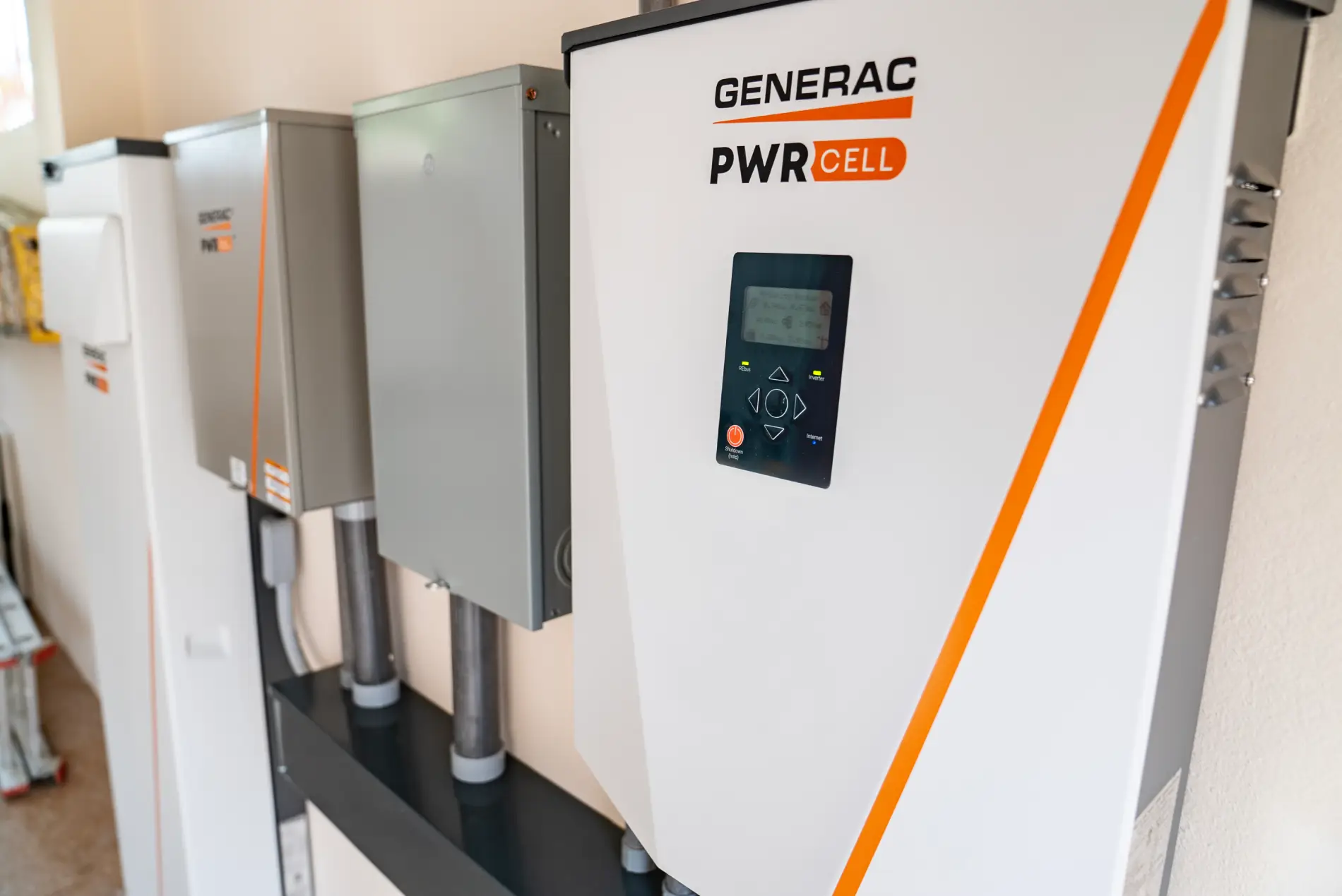It can really be confusing when you have multiple quotes for a home solar project because quite often different metrics and terminology can be used at different solar companies. The two most common terms you’ll encounter are kilowatts (kW) and kilowatt-hours (kWh). The two terms sound similar and often solar company reps use the terms interchangeably. But these are two different concepts and misunderstanding the terms can lead to poor decision-making, so let’s take a look at both terms and set things straight!
Understanding kW vs. kWh
Kilowatt (kW): A kilowatt is a unit of power that indicates the capacity of your solar system. It tells you the maximum amount of electricity that your system can generate at any given moment, a snapshot in time. When a solar provider says a system is 5 kW, it means that the system can produce up to 5,000 watts of electricity under ideal laboratory test conditions.
Kilowatt-Hour (kWh): A kilowatt-hour is a unit of energy that measures how much electricity your system should generate over time. If a 5 kW solar system operates at its full theoretical capacity for one hour, it will produce 5 kWh of electricity. This metric is crucial because it directly relates to offsetting your electricity consumption and utility bills.
In short: kW is the power your solar system can crank out at any given moment, while kWh is the amount of energy it actually produces over time. When comparing solar quotes, you want to look at both: how powerful the system is (kW) and how much energy it will actually produce for you (kWh). In comparing two cost quotes, using “cost per watt” or “cost per kW” is problematic, since some solar panels are much more efficient than others or are mounted differently. For a true apples to apples comparison, use “cost per kWh” generated.
Common Mistakes When Comparing kW and kWh
Focusing Solely on kW Capacity:
- Mistake: Many consumers assume that a higher kW rating means a better system. However, this doesn’t account for how much energy (kWh) the system will actually produce over time, which depends on factors like sunlight exposure, panel efficiency, mounting type, bifacial vs single-sided, and local weather conditions.
- Solution: Look at the estimated annual kWh production provided in the quote. This gives you a clearer picture of how much electricity the system will generate, which is critical for assessing whether it will meet your household’s energy needs.
Ignoring System Efficiency:
- Mistake: Consumers often overlook the efficiency of the panels, which can vary between systems. A less efficient system with a higher kW rating might generate less energy (kWh) than a more efficient system with a lower kW rating.
- Solution: Compare the efficiency ratings of the panels being offered. More efficient panels may cost more upfront but can provide better long-term value by generating more electricity in the same amount of space. Also, bifacial panels may have the same basic efficiency of single-sided panels, but capturing sunlight from both sides makes a huge difference!
Overlooking the Importance of Solar Inverters:
- Mistake: The inverter is a key component that converts the DC electricity generated by your panels into usable AC electricity. If your inverter isn’t sized or chosen correctly, it can limit the amount of kWh your system can produce, even if you have a high kW capacity.
- Solution: Ensure the inverter matches your system’s needs and is capable of handling potential increases in capacity if you plan to expand your system in the future.
Failing to Consider Energy Storage:
- Mistake: When comparing quotes in certain utility jurisdictions with time-of-use (TOU) rate structures and less than 1:1 netmetering, consumers may not factor in how battery storage affects kWh production and consumption. A system with storage might have a lower kW capacity but could provide more usable kWh by storing excess energy for later use or allowing arbitrage buying and selling.
- Solution: If you’re considering battery storage, compare how much additional kWh you can store and use from each system. This can significantly impact your overall energy independence and savings.
How to Compare Quotes Correctly
1. Total kWh Production: Focus on the estimated annual kWh production rather than just the kW capacity. This will give you a better idea of how much energy you’ll actually generate and use.
2. System Efficiency: Compare the efficiency of the solar panels and the quality of the inverters being offered.
3. Inverter Compatibility: Ensure the inverter is well-matched to your system and future-proofed for potential expansions.
4. Energy Storage: If you’re considering battery backup and you live in a TOU area with less than 1:1 netmetering credits, include the storage capacity and its impact on kWh production in your comparison.
Conclusion
Understanding the difference between kW and kWh, and knowing how to compare them correctly, can save you from making costly mistakes when choosing a solar system. By focusing on the right metrics and asking the right questions, you can ensure that you’re getting the best value for your investment, ultimately leading to greater energy savings and satisfaction with your solar installation.

